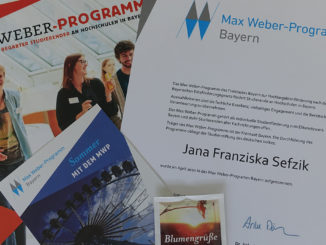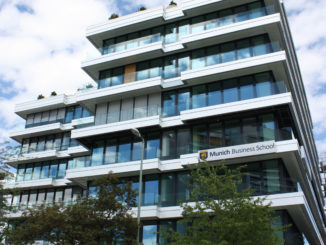
With the aim of more intensively networking Munich Business School and research-driven personalities whose research interests are in line with the research fields of MBS, the MBS Research Fellowship was newly created in 2020. Currently, there are four MBS Research Fellows who are already connected to the university in various ways. In our interview series, we introduce the scholars, starting with Alexander Richter, Professor and Associate Dean at Victoria University of Wellington.
MBS Insights: Dear Mr. Richter, what attracted you to become an MBS Research Fellow?
Alexander Richter: I have already collaborated and published with Prof. Dr. David Wagner in the past. The MBS Research Fellowship gives us the opportunity to deepen this collaboration again.
MBS Insights: What are your previous connections to MBS?
Alexander Richter: I still know MBS from my own student days in Augsburg and had colleagues from MBS during my time in the Munich office of a consulting company. My impression of MBS was quite positive back then.
In concrete terms, David Wagner and I have supervised a master’s thesis and, together with the master’s student, have created a conference paper from the results. Currently, we are in the process of preparing further publications in cooperation with the (now) alumna and her company. I hope that I will be able to continue my involvement in MBS research activities and teaching, especially in the doctoral program.
MBS Insights: Your research focuses on the topics of digital transformation and innovation. Can you tell us a bit more about your research? Which research project of the past years do you particularly like to think back to?
Alexander Richter: For me as an information systems researcher, it is important that my research is scientifically sound and relevant to practice at the same time. That’s why I always like to think back to projects with companies where we were able to make a difference and at the same time still had a good scientific output. From 2014 to 2018, for example, we drove forward the digital transformation in six European industrial companies as part of an EU-funded project, the buzzword being Industry 4.0. This resulted in solutions that were actually applied in the companies – and concepts that also found favor with our academic colleagues. But I also like to think back to the project because the Europe-wide collaboration with colleagues and the meetings in Spain, Italy, Slovenia, Austria, Belgium and Germany were very joyful and creative.
MBS Insights: And what are you particularly interested in at the moment? What are you currently researching/working on?
Alexander Richter: My general topic is IT-supported collaboration. COVID-19 and the associated lockdowns have triggered many changes here, almost overnight. I am currently trying to understand the effects of these (ad hoc) changes in order to derive how organizations and individuals can deal with them. I am also fascinated by the interface between humans and increasingly “intelligent” autonomous systems.
MBS Insights: Since February 2019, you have been Professor of Information Systems and currently also Associate Dean at Victoria University of Wellington. Previously, you worked at universities in Munich, Zurich and Copenhagen, and you studied in Augsburg and Rennes. How did the connection to New Zealand come about? Are there differences between the European and the university culture on the other side of the world?

Alexander Richter: I am in New Zealand because of my wife. She is also at a university and in the same field. I noticed differences every time I changed universities. The university culture in Denmark is also very different from that in Germany. Experiencing this difference was also a major reason why I moved there (combined with the fact that my research area has strong roots in Scandinavia). But the differences between Germany and New Zealand are certainly the biggest. The work culture in New Zealand is very intercultural. I have colleagues from over 20 countries working in my hallway. The university culture is a mixture of the Anglo-Saxon university system and intercultural work culture. Really exciting.
MBS Insights: What do you appreciate about MBS?
Alexander Richter: The contact with my colleagues is very pleasant – warm, open and supportive. I perceive MBS as an innovative university and look forward to being involved in its further development as a research fellow.
MBS Insights: What do you expect from the MBS Research Fellowship?
Alexander Richter: Collegial exchange, inspiration, learning new things – and hopefully this will result in visible output: some good publications and possibly projects in which we can make a difference.
MBS Insights: Thank you for the interview!

You are interested in economics and want to acquire in-depth business know-how?
Then the international business degrees at Munich Business School (MBS) are just right for you! At MBS you won’t cram dry theory from old textbooks, but learn in a outcome-oriented way and gain valuable practical experience. Convince yourself:
Bachelor’s in International Business
Master’s in International Business
Master’s in International Business I Finance
Master’s in Innovation and Entrepreneurship
Master’s in International Marketing and Brand Management
Master’s in Sports Business and Communication
MBA General Management
Doctor of Business Administration



